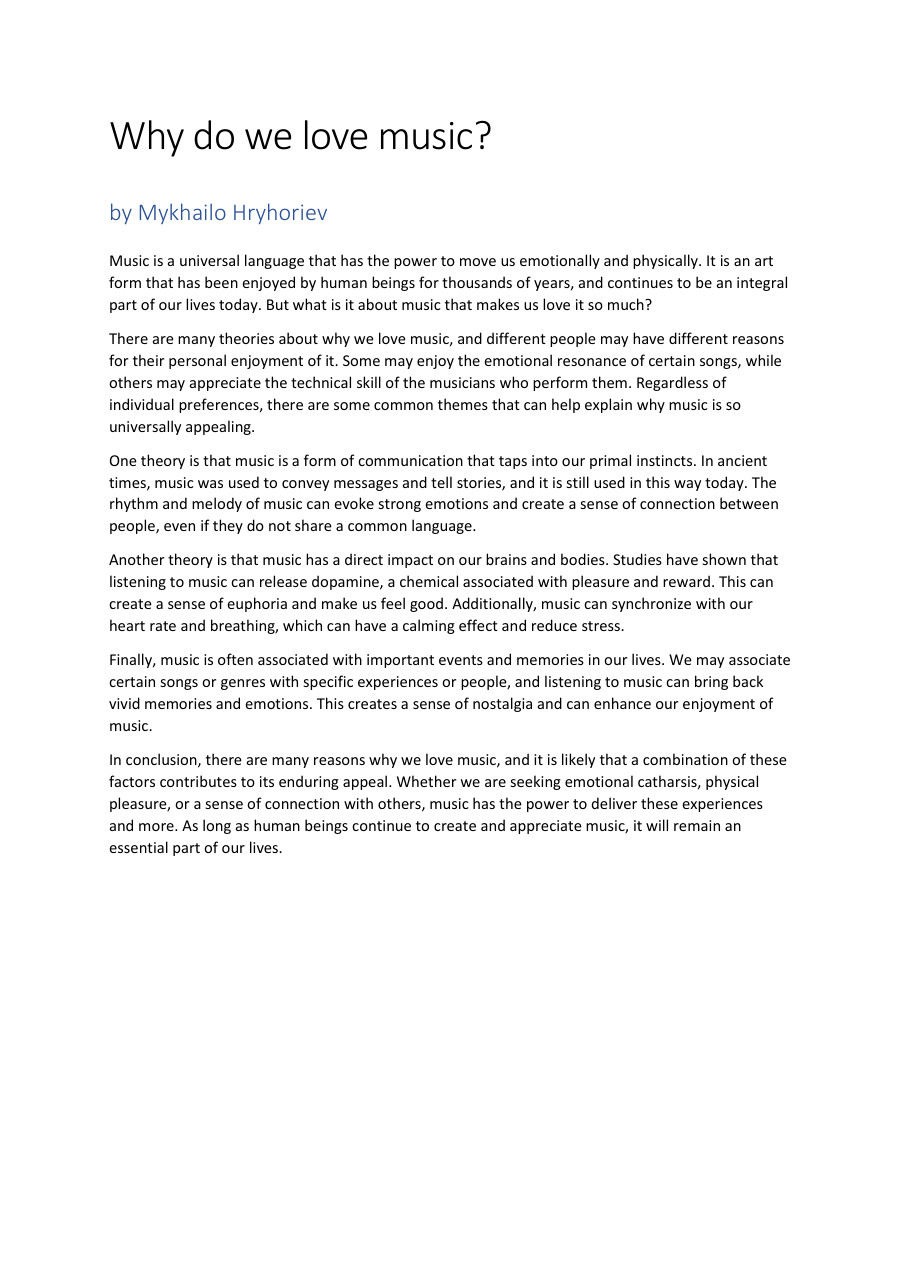 Hire a Tutor
Hire a Tutor 



This article explores the question of why we love music. It highlights some of the theories behind our emotional and physical connection to music, including its use as a form of communication, its impact on our brains and bodies, and its association with memories and important life events. Despite the various reasons people may love music, it remains a universal language that has the power to move and connect us.
More than 25 years of teaching experience
Qualification: National Ukrainian Pedagogical University degree
Teaches: Jazz, Keyboard, Piano
